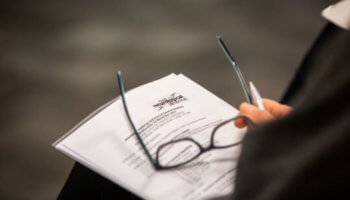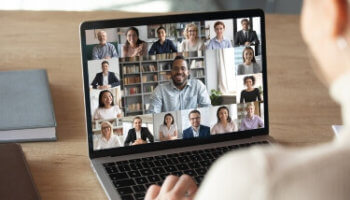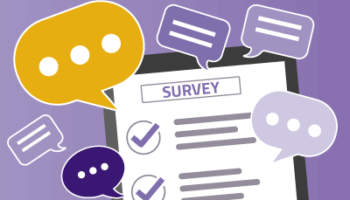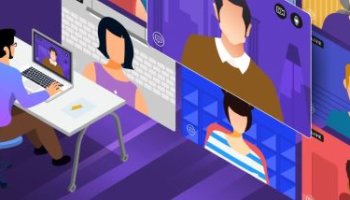Parliamentarians hear from people with neurological conditions about how they have been impacted during the pandemic
21/12/2020
This month, Parliamentarians from five All Party Parliamentary Groups (APPGs) on different neurological conditions came together to hear about how services for people with neurological conditions have been impacted during COVID-19, with a particular focus on rehabilitation. The session was jointly coordinated by the APPG secretariats, Parkinson’s UK, MS Society, SUDEP Action, MND Association, Epilepsy Action and the UK Acquired Brain Injury Forum (UKABIF), as well as the Neurological Alliance.
Josh, Andy and Phil’s stories
Three people living with neurological conditions shared their experiences of the pandemic: Josh, who has a brain injury as a result of a car accident, Phil, who has early onset Parkinson’s and Andy, who has motor neurone disease (MND). They told us the extent to which a lack of rehabilitation over the past nine months has set them back.
For example, Andy, who was diagnosed with MND last year, has had all of his regular appointments with an MND specialist and MND nurse cancelled in 2020. He told the meeting that losing access to physiotherapy services has been a real challenge for him this year. Josh said that he felt his condition had actually worsened as a result of not accessing the right rehab support. Phil has been able to access support online to remain active, and spoke highly of the support he had received from patient groups in particular.
People with neurological conditions have been hit hard during this pandemic
The Chief Executive of the Neurological Alliance, Georgina Carr, presented evidence on the devastating impact that Covid-19 has had on the lives and services of people with neurological conditions. In particular, the Alliance highlighted evidence from our survey of more than 1600 people with neurological conditions, which showed that more than 70% had experienced delays to their medical appointments, including rehabilitation support. We also presented analysis from Hospital Episode Statistics (HES), developed with Wilmington Healthcare, which showed that more than 18,000 people with a pre-existing neurological condition were admitted to hospital with the virus between March and June 2020.
Parliamentarians also heard from the Chair of the Association of Chartered Physiotherapists in Neurology (ACPIN), Adine Adonis, about the significant impact that the pandemic has had on the delivery of specialist rehabilitation. In particular, Adine pointed out that the ‘virtual’ delivery of services is usually not an adequate substitute for face-to-face specialist neurorehabilitation.
Professor Adrian Williams, consultant neurologist and NHS England and NHS Improvement Chair of the Neurosciences Clinical Reference Group, spoke about rehabilitation having been erroneously put in the “too difficult to do pile” for too long, and that national leadership needs to be put in place in order to address the longstanding problems in rehabilitation.
Stronger working together
Chris Bryant MP, Chair of the APPG for Acquired Brain Injury and Co-Chair of the meeting said: “I am delighted to be involved in such a positive event, bringing together all these APPGs to work together on an issue we know affects so many people with neurological conditions. Our voices and actions will be so much stronger working together. I look forward to working with parliamentarians from different groups to highlight the need for a national strategy and clear national leadership for rehabilitation.”
Simon Hoare MP, Chair of the APPG for Multiple Sclerosis (MS) and Co-Chair of the meeting added: “It is so important for politicians like us to hear about the reality facing people trying to access services. It is not easy listening, but demonstrates clearly the need for things to change. We’ve heard that it’s a false economy to not provide neuro-rehabilitation services. I now look forward to working with my colleagues across Parliament to help make sure these voices are heard and action is taken, and to make sure that the necessary change is made a reality.”
Next steps
The Parliamentarians who attended the meeting came to the following conclusions:
- There is a desperate case for a national leadership role in rehabilitation to focus and drive the concerns raised in the roundtable – and for this leadership position to be permanent.
- Rehabilitation services should be recognised as integral to the delivery of high-quality care. It is a false economy if such services are not provided due to the costs associated with a lack of action.
- Covid-19 has shone a harsh spotlight on the serious shortage of neuroscience specialists, including experts in neurorehabilitation and specialist nurses. Covid-19 has also, of course, disrupted training of future neuroscience specialists too – there needs to investment and a plan in place to ensure we have a health and care workforce that meets the needs of people with neurological conditions now and in the future.
- The role that digital care can play must be clinically reviewed and any best practice shared.
The Neurological Alliance, together with the APPG secretariats and APPG members, will be working together in the new year progress these recommendations. Please contact info@neural.org.uk if you would like further information about this work.





